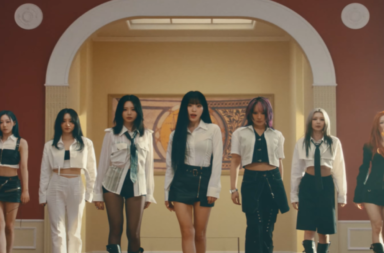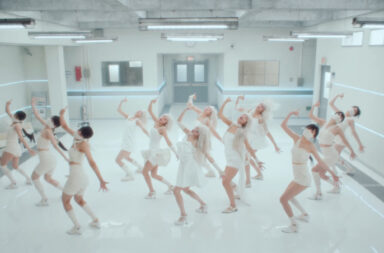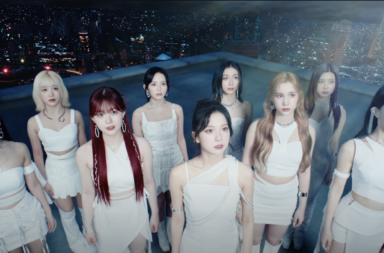
An accidental sub-unit after a one-off stage, Seventeen’s mood-maker trio, BooSeokSoon (BSS), return after five years with an honest and witty track, “Fighting”.
“Fighting” serves as every office worker’s mood booster in the midst of their ever-so-busy work life, neatly tying in with their album title, Second Wind, meaning “renewed energy or endurance”. On the surface, the track is silly and cute yet relatable. However, closer examination reveals the MV’s commentary on the gritty reality of the culture of overworking, one that is not only recognisable to Korea but also to the rest of us.
Focusing on Korea, the phrase “death by overwork” or “gwarosa” neatly captures the aforementioned phenomenon. As a CNN article confirms, “South Koreans work more hours per week on average than all but one other country and almost 50% more than famously industrious Germany”.
Long work hours, extreme sleep deprivation, excessive reliance on caffeine to remain awake, feeling like zombies, and getting pushed around by senior colleagues, are a few of the many roots of this problem that BSS name. Unfortunately, while the trio fiercely condemns these common practices, as powerless as these sluggish corporate workers, they are also unable to do more than cheer them on.
From the lyrics to the set design, and even their outfits, the toxic “hustle harder”, “the grind never stops”, and “sleep is for the weak” culture is plastered all over “Fighting”, as BSS sing about office workers who are one step away from a dangerous burnout. (Coincidentally, the term, “burnout”, has also been the eye-opening buzzword since the pandemic, making “Fighting” more relatable now than ever.)
Whoops, gotta wake up, morning already.
Closed my eyes, open, sun’s way up in the sky.
Give breakfast a pass, gotta sleep 10 more minutes, oh.
Take-out coffee, go (ame ame americano)
Speaking of an all-too-familiar routine, Hoshi and DK begin by lamenting about how there is never enough time to sleep, expressed by “Fighting”’s fairly abrupt start, “Whoops”, as though jolting up from a well-deserved slumber. This morning rush is further amplified by Hoshi’s inability to sit down to have breakfast. Owing to fatigue from working overtime the night before, it culminates in an unhealthy habit of skipping breakfast (“Give breakfast a pass, gotta sleep 10 more minutes, oh”) and grabbing a “take-out coffee” to fill his stomach instead.
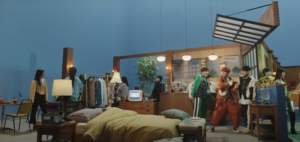
To visually convey this hectic feeling, BSS are confined within a small city-like set made up of an office worker’s primary locations all under one roof: a cafe (for coffee and short lunches), their bedroom (for power naps), and their office. Divided by a mere roundabout, “Fighting” exemplifies the hurried nature of work, as office workers shuffle between these three locations daily.
Another common effect of overworking is sleep deprivation. Here, DK finds himself in a bed right at a coffee shop, as Hoshi shoves his morning coffee in his hand, signalling that it is time to work upon opening his eyes. Quite literally embodying the “rise and grind” culture, DK is ready to work as soon as he wakes up, though he is not powered by a good night’s rest, but by his takeout coffee.
In the same way, this scene relates to office workers’ widespread overreliance on caffeine to function throughout the day, as BSS compare it to taking a nap. In another scene, Seungkwan hands DK his coffee, assuring him that it will give him a boost of “vitamin A, B, C”.
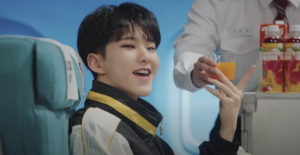
The motion speaks to a familiar sight: under the pressure to keep moving forward, office workers disregard their well-being and seek their boost of energy from cups of coffee, which is said to be their source of “vitamin”, instead of taking actual supplements. In a broader sense, the romanticised “rise and grind” culture clearly prioritises meeting targets and sales over one’s health.
In a highly competitive society that is unforgiving of failure, the hustle culture is sometimes viewed as “passion”, with overworked employees wearing it as a badge of honour. At other times, exhaustion is viewed as evidence and a reward for their hard work, and fatigue even becomes a “competition” among equally sluggish workers. As this CNN article shares, “Korea is a society that demands overworking. They demand you to work long hours. They think that working longer means working well and being productive.”
Overworking, therefore, not only takes a toll on them physically but also mentally. As Hoshi notes, “Just like the way stocks go up and down. Feels like you know life but you don’t know, it’s crummy”, their work performance dictates their self-worth and outlook on life.
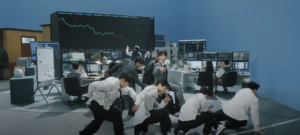
As a result, workers become increasingly negative and insecure as a result of the high expectations for success. Notably, DK highlights a Gen Z problem: “In the stories (Why do all my friends) look so cool there (Why me me, only me). Why why why why am I still struggling, why?”.
Part of the problem, as he details, is comparing oneself with their friends’ Instagram Stories, where everyone always appears to be living a better life than they are. Driven by the hunger to succeed, they then trap themselves further in a self-fulfilling cycle, pushing themselves to work even harder to achieve the seeming same degree of success as their friends.
BSS’ solution to the culture of overworking is to listen to this very song. “Fighting” is a source of energy for everyday office workers, just like the energy boost that workers receive when they gulp down their many cups of Americano. Though the trio admit that this is the only thing they can do for office workers, they are honest enough to realise that the hustle culture may not die down soon, so workers “Gotta keep going, what else can you do?”.
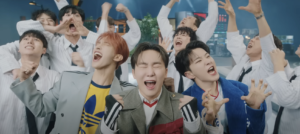
With new buzzwords such as “coasting culture” and “quiet quitting”, which describes the phenomenon of employees doing the bare minimum at work, “Fighting” is a relatable yet energetic song for this generation of corporate workers that are steadily fighting back against the culture of overworking.
(Youtube[1]. BBC, CNN, NPR. Lyrics by Colorcodedlyrics. Images via HYBE.)
